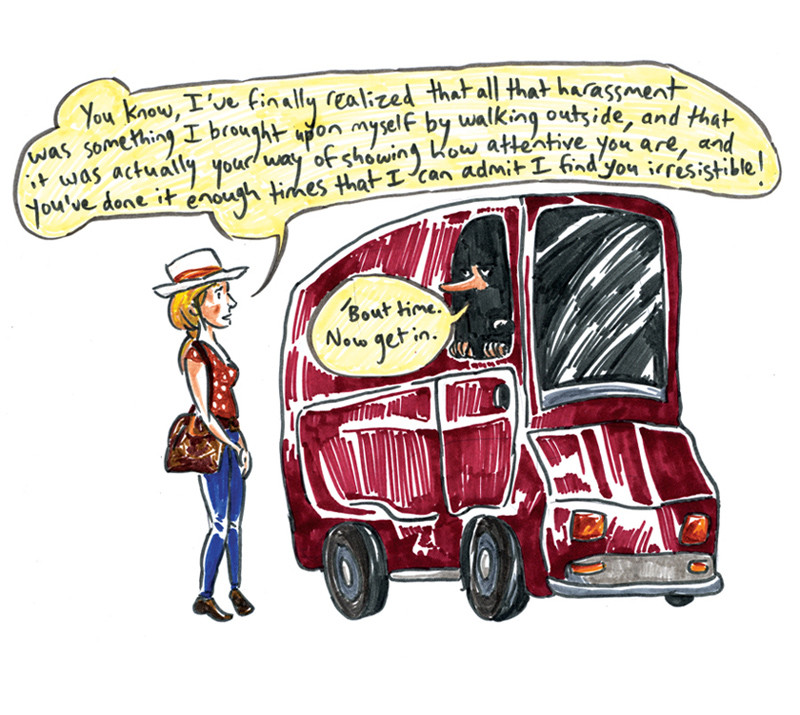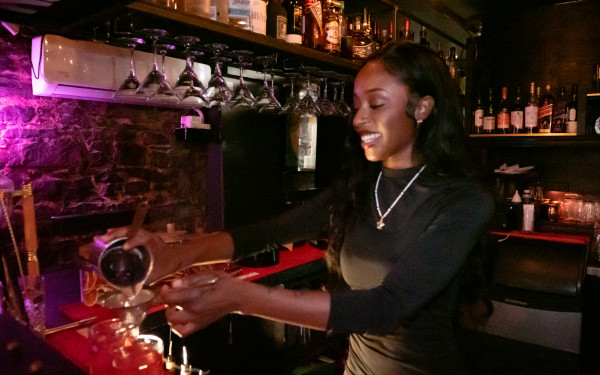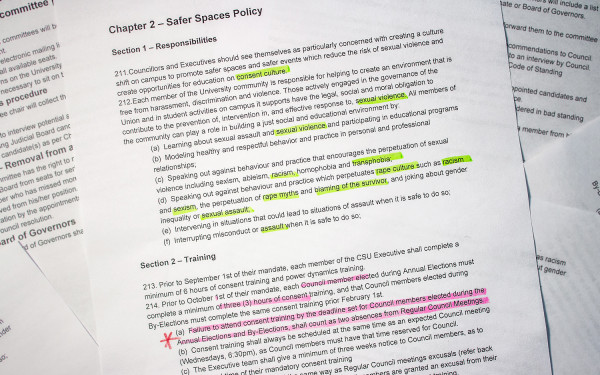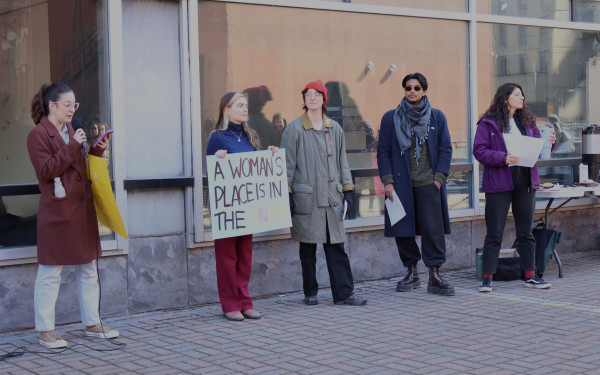Excuses Get Us Nowhere
The Way Harassment is Handled Needs to Change
Four years ago, while I was still living in Montreal North—an area scarred by media portrayal as a dangerous place—I was stalked for almost an entire month.
I was 17 and getting ready for my final year of high school. He lived across the boulevard; his age doesn’t matter. Things began innocently enough, with him driving past me, attempting to start a conversation. I ignored his efforts because these types of scenarios were quite common for me, and they didn’t usually pose a threat.
Things escalated, however, and eventually every time I left the apartment, whether it was to walk my dog or go to the grocery store, he would be there with his car. He would constantly pursue a conversation, and once, as I was about to cross the street, he blocked my path with his car.
One night he drove away slowly as I was walking home, and I took the chance to memorize his licence plate. My mother, already aware of the situation, called the police.
We had his address, his license plate number, his physical description—you would think that would be enough to push the police to pursue the issue. Instead, they simply told us that they were unable to interfere “unless something actually happens.”
He moved away not long after the incident, so my experience, while traumatic, ultimately didn’t end tragically. Many others are not so fortunate.
Time and time again the victim becomes the one to blame in instances of assault or harassment. Rationalizations always spring up, with people making claims like, “If they [the victim] knew they were in danger, they could have done something beforehand.”
Police and authority figures use these attitudes as a way of simply sweeping harassment cases under the rug, rather than addressing the incidents and their broader causes head-on.
Greater barriers need to be put into place to prevent people from feeling threatened by aggressive figures. Police need to be more present and involved if someone feels they are being pursued, so that if an act of violence occurs they can be there to catch the perpetrator.
Discussions on how to combat harassment and assault are crucial. It’s unacceptable for these dialogues to be covered up or considered taboo. The same excuses will be used as a way of justifying harassment and nothing will change; nothing will move forward.
“It happens all the time,” goes a common refrain dismissing harassment and assault complaints. Ironically, that’s exactly right, and it means there’s more need than ever to work to fix things. Frequency is not an excuse; it’s something that should spark a response or, at the very least, a change in policy.
“It’s always been this way,” goes another. Justifying assault by claiming it was once acceptable not only represents an absurdly selective reading of history, but also an incredible laziness in confronting and understanding these issues.
Even if these distorted versions of history were accurate, there really is no reason to define our current standards by what may have existed in the past.
What’s needed now is philosophical introspection when it comes to men and women, the roles they’re assigned, and how our society reinforces them, coupled with real action on the part of institutions.
Had my situation been a Hollywood movie, the story would’ve ended happily ever after; I would’ve realized what a wonderful person this predator could be. The passive aggressive female meets the assertive, dutiful male. It should go without saying how ridiculous this scenario is.
Perhaps the most reductive thing about these dismissive stances is their outright neglect of the psychological aspects of assault and harassment, framing the issues solely in terms of physical contact.
Although a person’s body is their physical identity, it has no necessary correlation to their self. We ought to quit seeing each other like pieces of clay to be molded, and we should not reduce relationships between two people, physical or otherwise, to mere business transactions or penances.
We’re simply worth more than that. We can do better.


_600_832_s.png)




